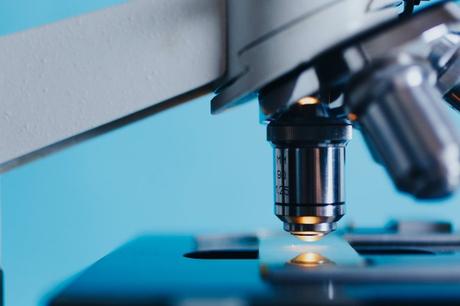
I’ll often hear people say things like, “I have no time for faith. I live my live on reason, observation and evidence.” Really?
I see. Well – let’s see how that works, shall we?
Lets imagine a scientist is doing some rigorous analysis, studying something in nature. How about, the behavior of enzymes in the human digestive system. Well – I agree. That scientist is going to use reason, she’s going to make observations and also appeal to the evidence she gathers as she reaches her conclusions. But – what else is going on as she does so?[1]
1 – She BELIEVES that her senses are trustworthy. In other words, she has faith that as the facts reveal themselves to her, that she has the abilities to detect them via her senses. That she can know facts using human senses.
2 – She BELIEVES that her mental faculties are trustworthy. And – she believes the peer group that reviews her work – also have trustworthy mental faculties. These scientists trust their rational faculties. They just take for granted, for example, that their rational faculties allow them to perceive, compare, combine, remember and infer. In other words, these people believe their mental faculties are reliable and can be used to reach legitimate conclusions.
3 – She BELIEVES certain critical truths that she has NOT learned thru scientific observation alone:
- Every effect must have a cause
- The same cause under like minded circumstances will produce the same effect.
4 – She BELIEVES it is moral and right to use her rational faculties, not to manufacture and make up things, but to accurately observe the behavior of these enzymes, and report them as honestly and rigorously as she can.
That’s a lot of faith / belief before we start our scientific analysis. Don’t you think? Perhaps you and I are in the same boat whether we do science or not. People often appeal to science because it holds a lot of authority in our culture today. But what is science actually grounded upon?
Sir John Polkinghorn has said:
“Science does not explain the mathematical intelligibility of the physical world, for it is part of science’s founding faith that this is so.”
Professor of Mathematics, John Lennox, has continued.[2] You cannot begin to do physics without believing in the intelligibility of the universe. And on what evidence do scientists base their faith? Lennox observes the following:
1 – Human reason did not create the universe.
2 – Humans did not create our own powers of reason either. We can hone them, but we didn’t originate them.
How odd then that what goes on our tiny heads actually gives us anything near a true account of the behavior of the staggering universe in which we inhabit? This is truly an unreasonable conclusion…from the perspective of atheism.
BUT – for a theist – the grounding beliefs of the scientist and the observations above make perfect sense. And they resonate perfectly with:
“In the beginning was the Word … and the Word was God … All things came to be through him.” (John 1:1,3)
[1] Nancey Murphy, Beyond Liberalism & Fundamentalism, (New York: Trinity Press International, 2007), 33-34, summarised.
[2] John C. Lennox, Can Science Explain Everything, (Oxford: The Good Book Company, 2019), loc 526.
